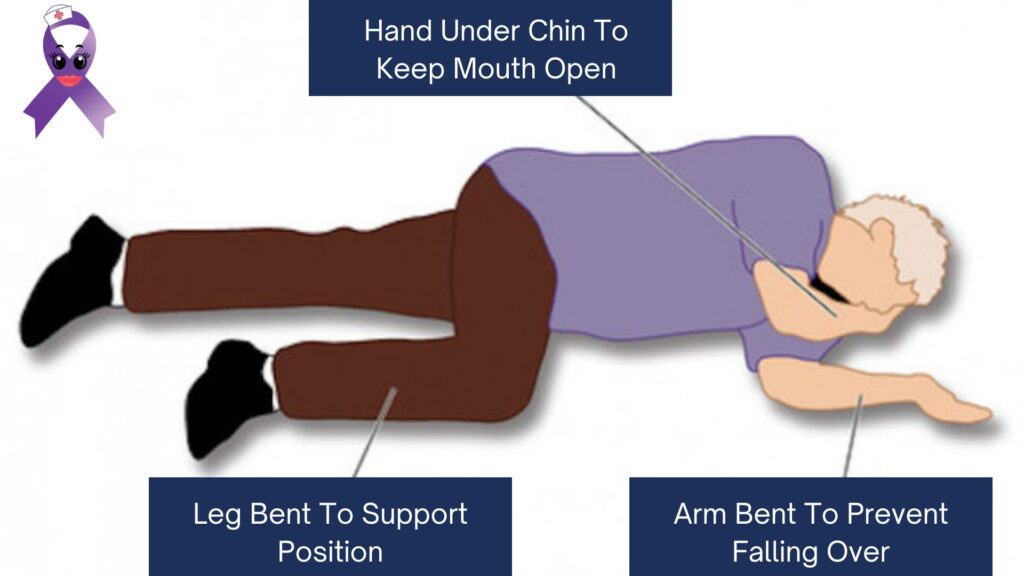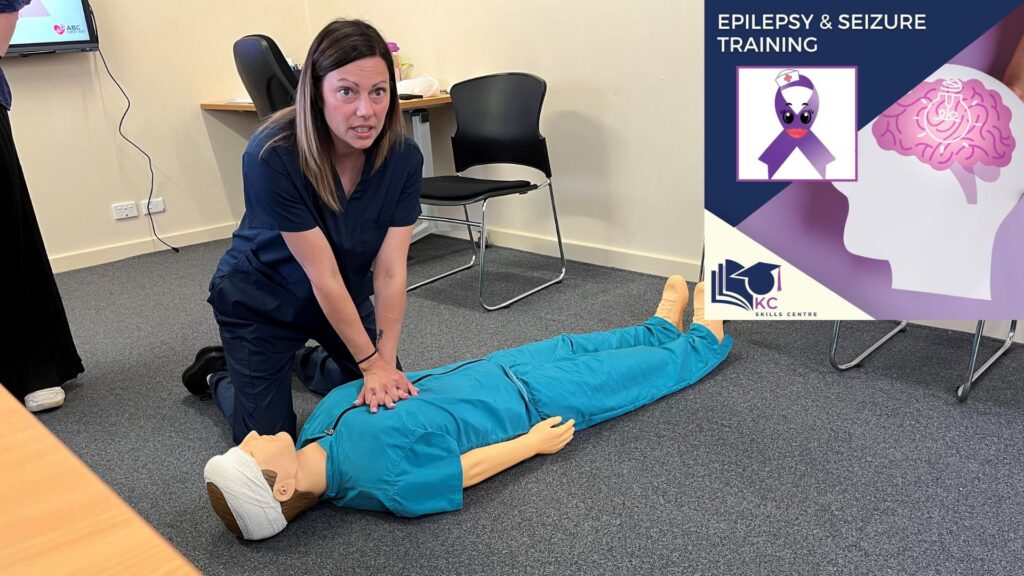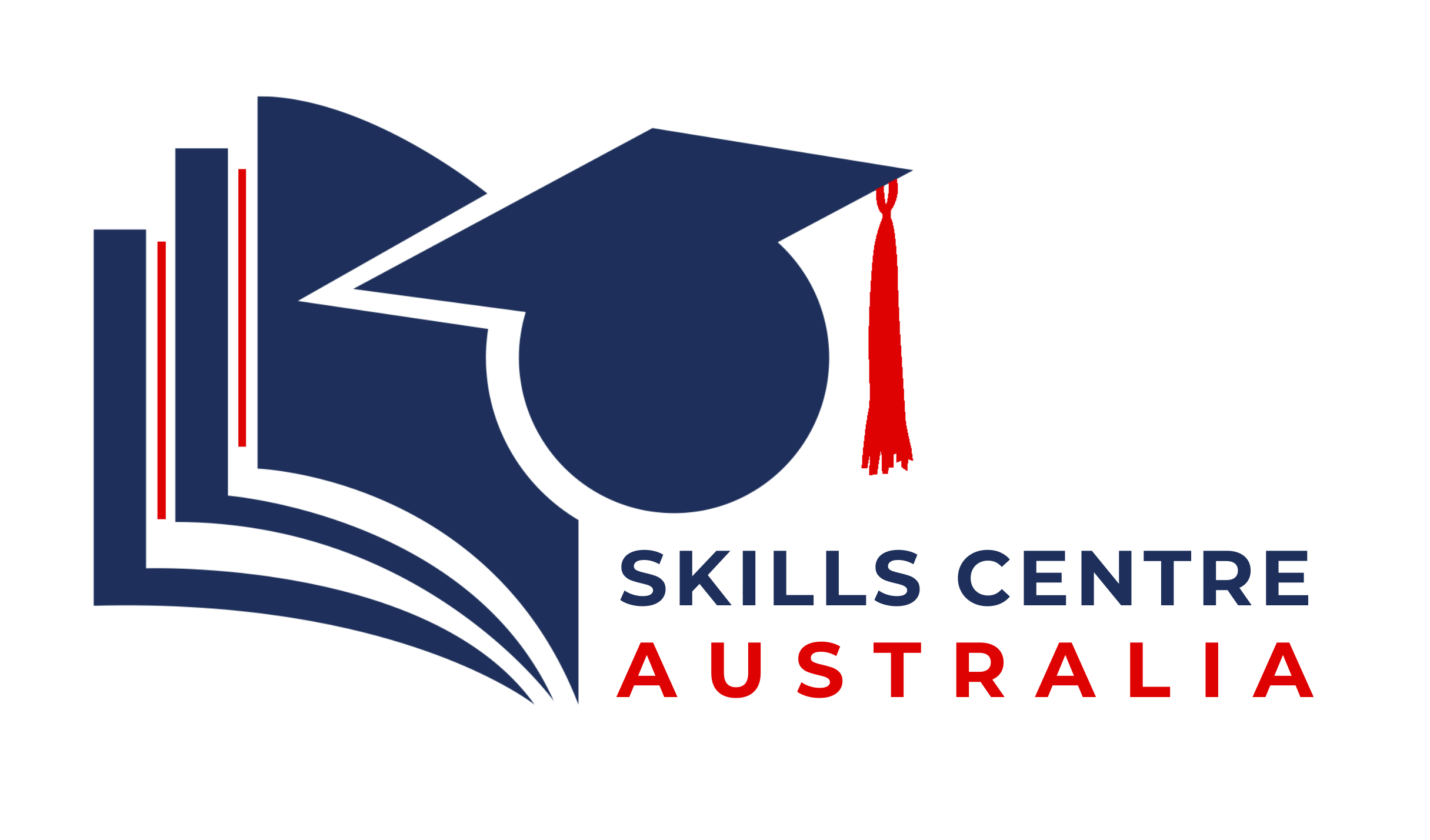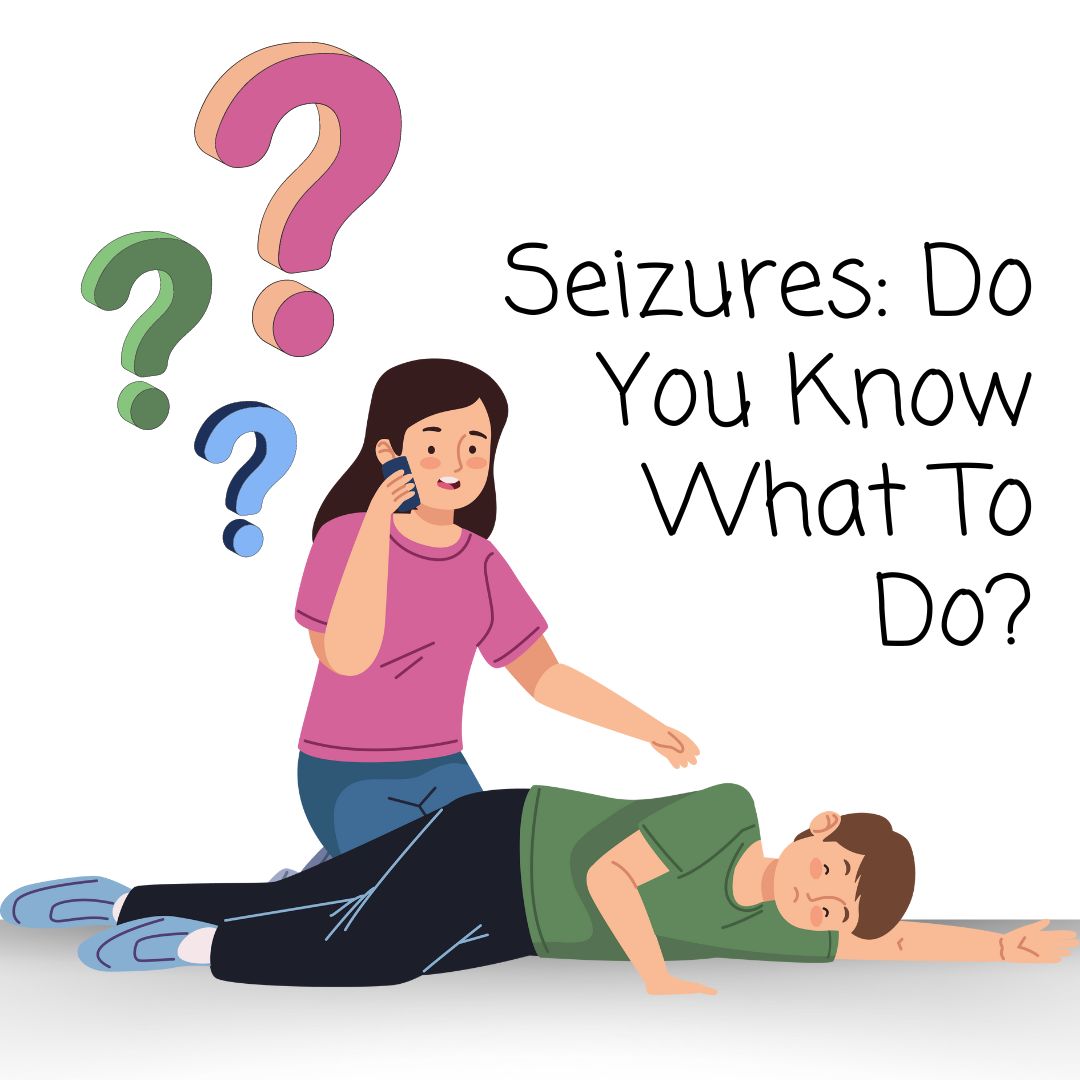Epilepsy is a prevalent neurological condition in Australia, affecting approximately 250,000 individuals, or about 1% of the population.
This condition, characterised by recurrent seizures due to disturbances in the brain’s electrical activity, is more common than several other neurological disorders combined, such as Parkinson’s disease, cerebral palsy, multiple sclerosis, and muscular dystrophy.

Recognising and Responding to Seizures
When someone experiences a seizure, knowing how to respond correctly is crucial to ensure their safety. The immediate steps are simple but vital:
- Stay Calm: Keep yourself and the person calm.
- Prevent Injury: Move any objects out of the way that could injure the person.
- Ease to the Floor: Gently guide them to the floor and place something soft under their head.
- Turn on Side: If possible, gently turn the person onto their side to help clear their airway.
- Stay with Them: Remain with the person until the seizure ends naturally.
- Seek Medical Help: Call emergency services if the seizure lasts more than five minutes or the person does not regain consciousness promptly.

Common Myths and Misconceptions
Several myths about epilepsy and seizures persist, which can lead to inappropriate and harmful responses:
- Myth: You should hold the person down during a seizure.
Reality: Never restrain movement; this can cause injuries.
- Myth: Put something in the person’s mouth to prevent biting their tongue.
Reality: Never put anything in the person’s mouth during a seizure, as this can cause dental damage or choking).
Epilepsy and Seizure Training by KC Skills Centre
The KC Skills Centre offers comprehensive training designed to improve understanding of epilepsy and enhance the management of seizures within various settings, including educational and care facilities. Their programs are evidence-based and focus on:
- Understanding the different types of seizures and their management.
- Developing individualised epilepsy management plans.
- Providing support and education to families, caregivers, and professionals.

Australian Epilepsy Statistics and Impact
Epilepsy significantly impacts individuals’ lives across the country. Notably, while many can manage their condition through medication, about 30% of those with epilepsy do not achieve complete seizure control (Tunstall Healthcare).
The disorder can develop at any age, with significant diagnosis rates in early childhood, adolescence, and post-65 years of age.
With an ageing population, the incidence of epilepsy in individuals over 60 is increasing, making it a critical focus for healthcare providers and support networks.
Epilepsy training and awareness programs, such as those provided by KC Skills Centre, play a vital role in educating the public and professionals. They help dispel myths, provide accurate information, and promote safe and supportive environments for those affected by this condition.
For those seeking further information or support, organisations like the Epilepsy Foundation offer resources and assistance to individuals with epilepsy and their families, enhancing their quality of life and ability to manage this challenging condition.

